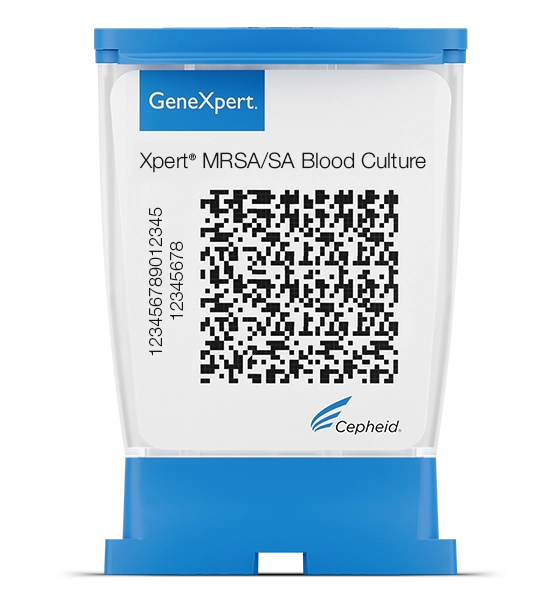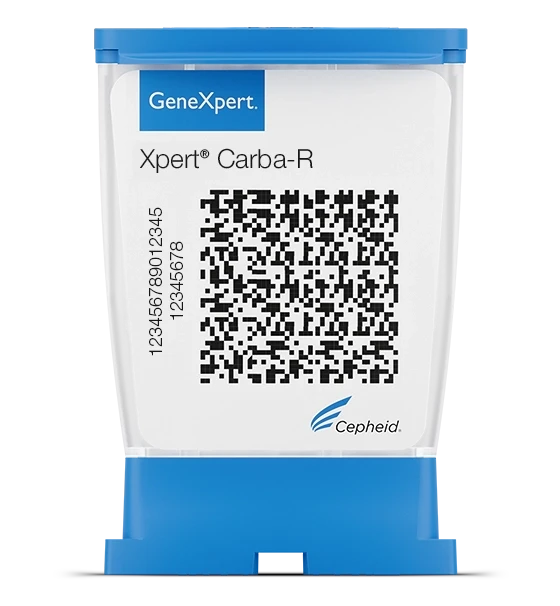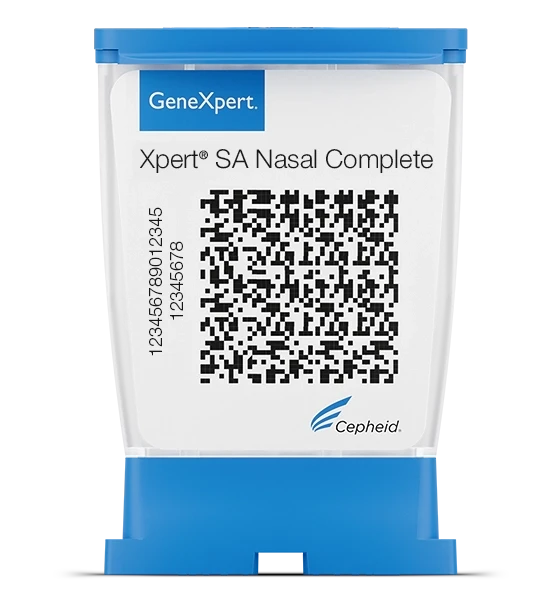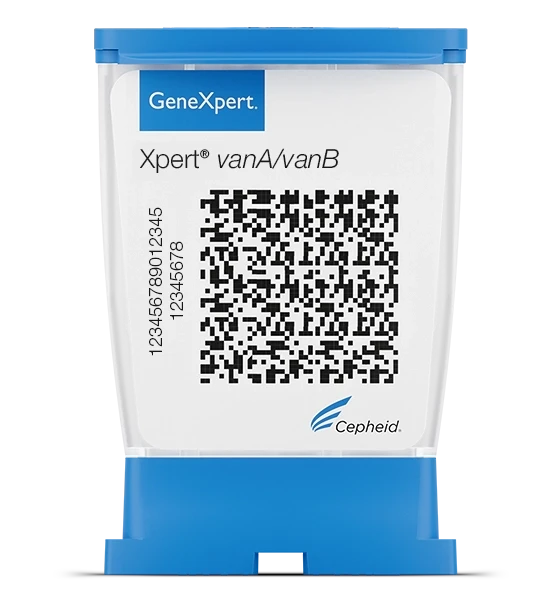

Der Bedarf
- Infektionen in der Blutbahn führen schätzungsweise zu 250,000 Todesfällen pro Jahr in Nordamerika und Europa zusammen.1
- S. aureus und Methicillin-resistenter S. aureus (MRSA) sind nach wie vor die Hauptursachen für Infektionen in der Blutbahn und mit einem längeren Krankenhausaufenthalt und höheren Krankenhauskosten verbunden.2
- Die aktuellen kulturbasierten Labortestmethoden für grampositive Blutkulturflaschen verlängern die Bestimmung von S. aureus bzw. MRSA um zusätzliche 24–72 Stunden.
- Eine frühzeitige Antibiotikatherapie kann die Mortalitätsrate bei Infektionen der Blutbahn reduzieren.2
Diekema DJ, Hsueh PR, Mendes RE, Pfaller MA,
2 Parcel B, et al. Rapid molecular testing for Staphylococcus aureus bacteraemia improves clinical management. J Med Microbiol. März 2020;.
Die Lösung
Der Xpert MRSA/SA Blood Culture Test ermöglicht:
- Effizienz im Labor mit bedarfsbasierten Workflows und minimaler Hands-On-Time
- Optimierte Therapie für bessere Patientenergebnisse und weniger empirische Verordnungen
Die Auswirkungen
- Verkürzung der medianen Laufzeit bis zur Ergebnisausgabe auf 24 Stunden, sodass Entscheidungen zur Versorgung von Patient/innen früher getroffen werden können.2
- Verbesserung der Antibiotikatherapie, die 1.7 Tage früher eingeleitet werden kann3
- Verkürzung der medianen Aufenthaltsdauer auf 6.2 Tage3
3 Goff D, et al. An antimicrobial stewardship program’s impact with rapid polymerase chain reaction methicillin-resistant Staphylococcus aureus/S. aureu sblood culture test in
patients with S. aureus bacteremia. Clin Infect Dis. 2010
Produktressourcen
Produktinformationen
Packungsbeilagen und SDB
Häufig gestellte Fragen
The Xpert® MRSA/SA Blood Culture test, performed on the GeneXpert® systems, is a qualitative in vitro diagnostic test intended for the detection of Staphylococcus aureus (SA) and methicillin-resistant Staphylococcus aureus (MRSA) DNA directly from positive blood cultures.1
The test utilizes automated real-time polymerase chain reaction (PCR) for the amplification of MRSA/SA specific DNA targets and fluorogenic target-specific hybridization probes for the real-time detection of the amplified DNA.1
The Xpert MRSA/SA Blood Culture test is indicated for use in conjunction with other laboratory tests, such as culture, and clinical data available to the clinician as an aid in the detection of MRSA/SA from positive blood cultures. Subculturing of positive blood cultures is necessary to recover organisms for susceptibility testing or for epidemiological typing. The Cepheid Xpert MRSA/SA Blood Culture test is not intended to monitor treatment for MRSA/SA infections.1
Staphylococcus aureus (SA) is a human pathogen, which is the causative agent of a range of diseases including bacteremia, endocarditis, osteomyelitis, toxic shock syndrome, food poisoning, carbuncles, and boils.1
In the early 1950s, acquisition and spread of beta-lactamase-producing plasmids thwarted the effectiveness of penicillin for treating SA infections. In 1959, methicillin, a semi-synthetic penicillin, was introduced and, soon after, methicillin-resistant SA (MRSA) strains were identified.1
MRSA colonization increases the risk of infection, with infecting strains match colonizing strains in as many as 50–80% of cases. MRSA nasal colonization rates range from 0.9% to 1.5% in the United States2
Referenzen:
1. Xpert® MRSA/SA Blood Culture Package Insert. Zugriff am 9/25/2024. https://www.cepheid.com/de-DEntent/dam/www-cepheid-com/documents/package-insert-files/301-1061-mrsa-sa-bc/IFU%20MRSA.SA%20BC%20ENGLISH%20301-1061%20Rev%20F.pdf
2. Turner, N.A., Sharma-Kuinkel, B.K., Maskarinec, S.A. et al. Methicillin-resistant Staphylococcus aureus: an overview of basic and clinical research. Nat Rev Microbiol 17, 203–218 (2019). https://doi.org/10:1038/s41579-018-0147-4










